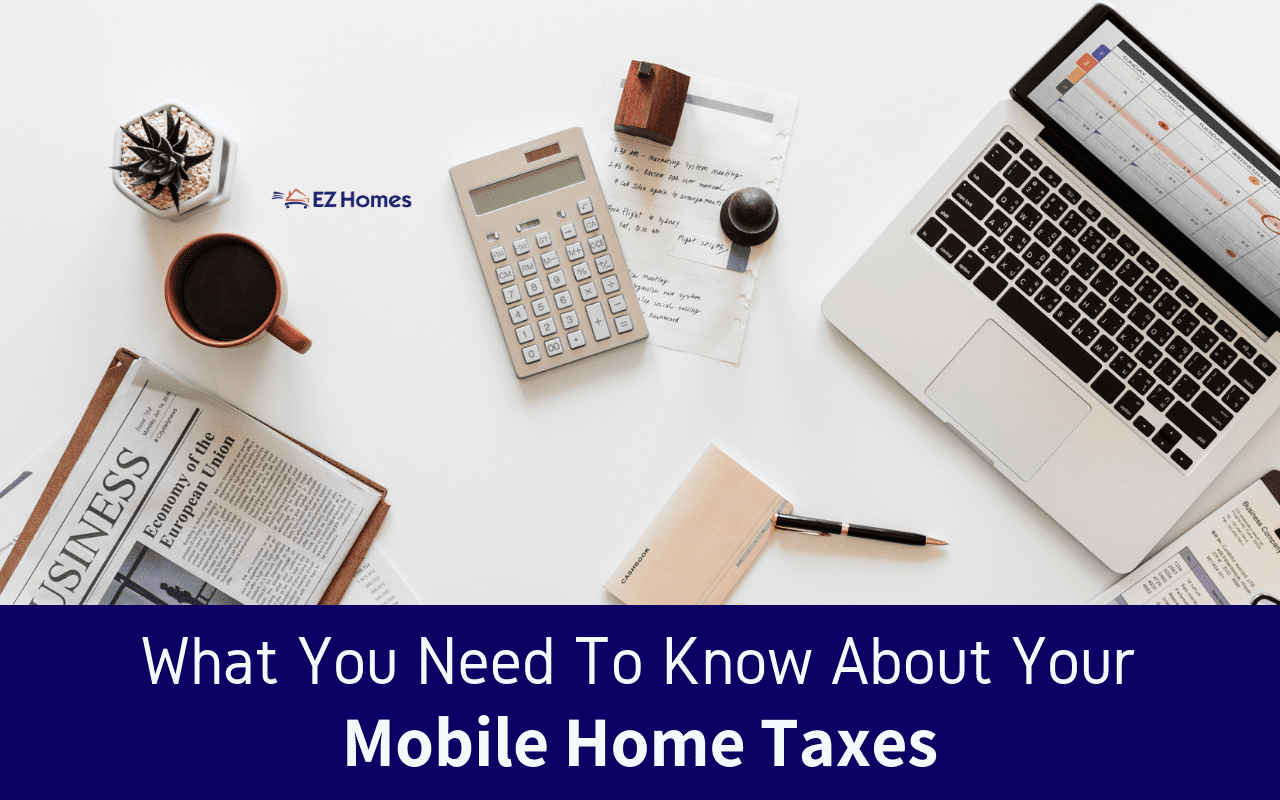Tax season is on the horizon as we stand on the brink of a new year. Going into 2019 better informed on taxes will certainly make the transition and upcoming tax season more bearable.
Wondering how taxes apply to you as a mobile home owner? Not sure how being in a mobile home makes taxes different for you?

If you feel daunted by the topic of mobile home taxes, never fear. We’re taking time out to share some must-have knowledge about your mobile home taxes.
So here’s to being a little more informed!
What you need to know about your mobile home taxes
There are several aspects of mobile home taxes we think you should know about. But first, let’s talk about the IRS and how they perceive mobile homes.
The IRS and mobile homes
On the Internal Revenue Service website, you’ll find that a mobile home qualifies as a home.
“A home includes a house, condominium, cooperative, mobile home, house trailer, boat, or similar property that has sleeping, cooking, and toilet facilities,” according to the IRS.
So now that we’ve established that a mobile home is indeed considered a home by the IRS, we’re ready to discuss things you need to know about your mobile home taxes.
Mobile home owners and property tax
In a discussion of mobile homes and property tax, it’s important to differentiate between homeowners that own the land that the mobile home sits on and homeowners that don’t own the land that the mobile home sits on. An example of the latter would include a mobile home you purchased that sits on a lot that you’re paying monthly rent to use.
The owner of the property is paid by the property owner. Normatively, the property tax is contingent on the value of the property. Your property will be assessed for its value and the tax rate will be applied to that number.
To find out the exact percentage and methods of property tax calculation in your jurisdiction, reach out to your local tax assessor.
How it works if the homeowners own the land

If you own the property, it’s your responsibility to pay the property taxes. It’s your property, thus you are responsible for seeing that the government gets its cut.
How it works if the homeowner does not own the land
In the case that you don’t own the land, but you own the home, property tax responsibility varies from state to state.
Some jurisdictions will require the renter to pay the property tax, others will require the property owner to pay the property tax.
You’ll find that in some local governments, the tax will be calculated on both the value of the home and land. In others, the home and land will receive their own respective property tax bills.
For up to date information regarding taxes in your area, reach out to your local government.
Taxes when it comes to the sale of your mobile home
The mobile home owner benefits from all the rights that a traditional homeowner would.
Should you find that you’ve lived in your home for two of the previous five years as your main residence, some of your profits could be exempt from capital gains taxes.
This is good news for the mobile home owner.
Taxes when you rent out your mobile home
Are you using your mobile home as a rental? In that case, it could lose its status as a home. To qualify as a second home, your mobile home must be used by you for a particular number of days. In most cases, the number of days you spend residing in your second home must be more than 10% of the number of days that you rented it out.
Tread carefully and ensure you have the right data according to your locale if it’s important that your mobile home is considered a home in the eyes of the IRS.
First-time homebuyer credit for mobile homes
Mobile homes do indeed quality for first-time homebuyer credit. According to the IRS, “it’s not necessary that the taxpayer own the land to qualify for the first-time homebuyer credit.”

Reach out to your local government
So you don’t miss out on any special information or tax exemptions, it’s best that you reach out to your local government. They’ll provide you with the data you need to understand how taxes apply to your home situation. You’ll know exactly what you need to know about your mobile home taxes. Read our blog for more about property tax and how it applies to your mobile home, among other questions.


